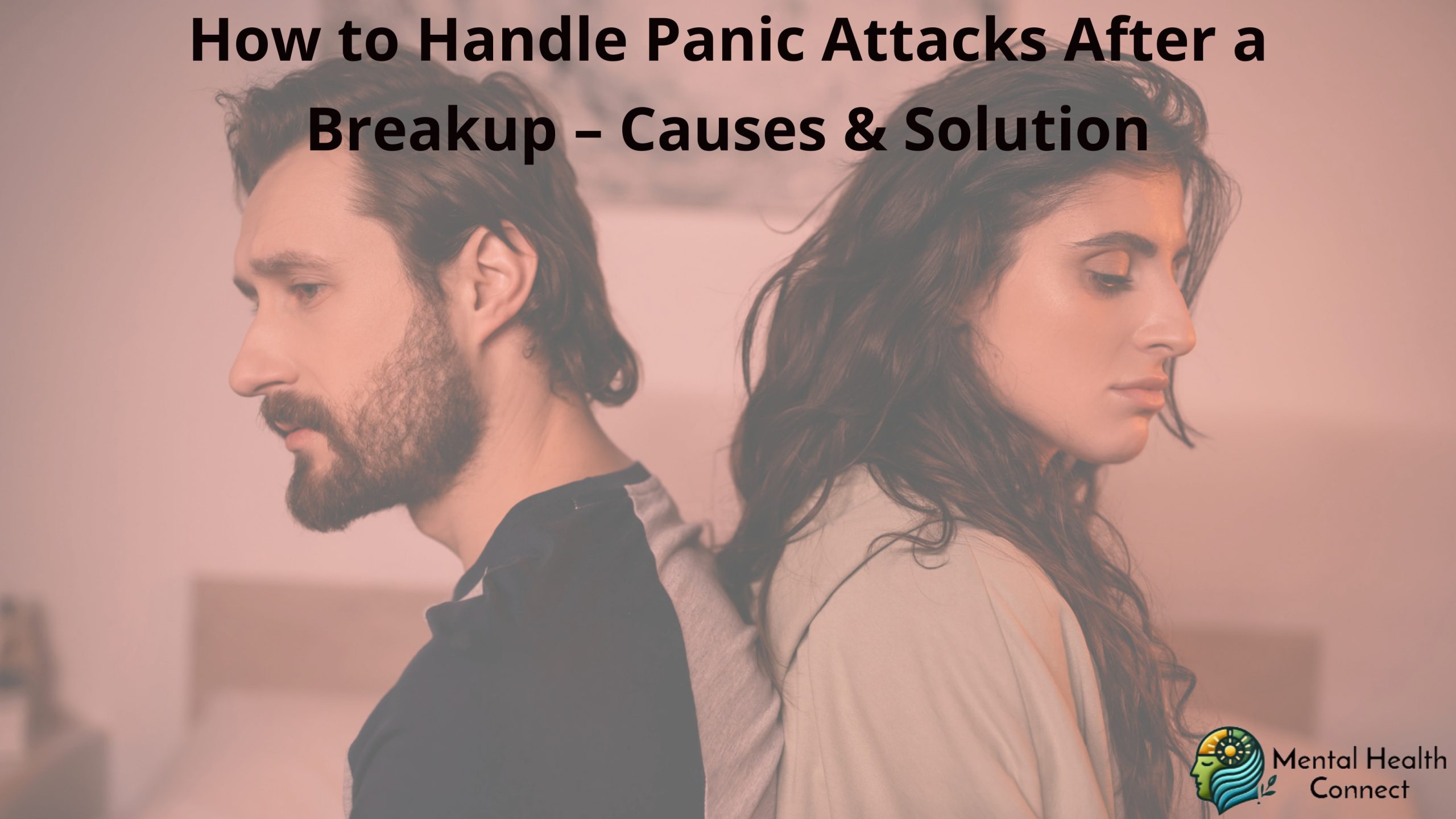How to Handle Panic Attacks After a Breakup – Causes & Solutions

Breakups can be emotionally devastating, often triggering intense anxiety and panic attacks. If you find yourself experiencing sudden waves of fear, rapid heartbeat, or difficulty breathing after a breakup, you’re not alone. Panic attacks after a breakup are a common yet distressing experience. Understanding their root causes and effective coping mechanisms can help you regain control of your emotions and begin the healing process.
What Are Panic Attacks After a Breakup?
A panic attack is a rapid surge of overwhelming fear or distress that escalates to its peak within minutes. After a breakup, panic attacks can be triggered by emotional distress, unresolved trauma, or fear of abandonment. Common symptoms include:
- Rapid heartbeat
- Shortness of breath
- Dizziness
- Chest pain
- A sense of impending doom
These symptoms can be frightening, but they are manageable with the right approach.
Why Do Panic Attacks Happen After a Breakup?

Breakups often bring a mix of emotions, including grief, anxiety, and loss. Some key psychological and physiological reasons for post-breakup panic attacks include:
- Emotional Shock: The sudden loss of a partner can create a stress response.
- Attachment Trauma: Deep emotional bonds, especially in long-term relationships, can make separation feel unbearable.
- Fear of Being Alone: Anxiety about the future can contribute to panic episodes.
- Unresolved Past Trauma: Previous heartbreaks or childhood experiences can intensify emotional responses.
- Physical Stress Response: The body releases high levels of cortisol (stress hormone), exacerbating anxiety.
How to Manage Panic Attacks After a Breakup

Dealing with panic attacks requires a combination of emotional, physical, and psychological strategies:
1. Practice Deep Breathing
- Practice the 4-7-8 breathing method: Breathe in for 4 seconds, hold your breath for 7 seconds, and slowly exhale for 8 seconds.
- Focus on slow, controlled breaths to reduce hyperventilation.
2. Engage in Mindfulness & Meditation
- Try guided meditation apps such as Headspace or Calm to support relaxation and mindfulness.
- Ground yourself by focusing on the present moment.
3. Stay Physically Active
- Exercise releases endorphins, which help combat stress.
- Activities like yoga, jogging, or even a short walk can improve your mood.
4. Challenge Negative Thoughts
- Replace catastrophic thinking with positive affirmations.
- Write down fears and counter them with rational responses.
5. Seek Support
- Talk to a trusted friend or therapist.
- Consider joining a breakup recovery support group.
Best Practices for Overcoming Panic Attacks

- Prioritize Self-Care: Eat well, sleep properly, and avoid alcohol/caffeine.
- Create a Healing Routine: Journaling, art, or new hobbies can help refocus your mind.
- Limit Social Media Exposure: Avoid triggers that worsen emotional distress.
- Gradual Exposure: Slowly reintroduce activities that remind you of your ex to desensitize emotional reactions.
Common Mistakes & How to Avoid Them
1. Suppressing Emotions
- Solution: Acknowledge and process emotions instead of bottling them up.
2. Isolating Yourself
- Solution: Stay connected with friends and family for emotional support.
3. Relying on Unhealthy Coping Mechanisms
- Solution: Avoid excessive drinking, emotional eating, or rebound relationships.
4. Overanalyzing the Breakup
- Solution: Accept the past and focus on the present moment to promote healing.
Future Trends & Predictions in Anxiety & Breakup Recovery

- Advancements in AI Therapy: AI-driven therapy apps provide personalized coping strategies.
- Virtual Support Communities: More people are turning to online therapy and support groups for emotional healing.
- Holistic Healing Practices: Alternative therapies like breathwork and energy healing are gaining popularity.
FAQs
1. How long do panic attacks last after a breakup?
Panic attacks typically last between 10-30 minutes, but their frequency depends on emotional processing and coping strategies.
2. Can breakups cause long-term anxiety disorders?
If untreated, severe breakup-related anxiety can develop into generalized anxiety disorder (GAD) or depression.
3. Are panic attacks after a breakup normal?
Yes, many people experience heightened anxiety and panic due to emotional distress and attachment loss.
4. Should I see a therapist for breakup-related panic attacks?
If panic attacks persist or interfere with daily life, seeking therapy can provide valuable coping mechanisms.
5. What immediate steps can I take during a panic attack?
Practice deep breathing, use grounding techniques (e.g., 5-4-3-2-1 method), and remind yourself that it will pass.
6. Can exercise help reduce panic attacks after a breakup?
Yes, physical activity releases stress-relieving hormones and helps regulate mood.
7. What should I avoid doing after a breakup to prevent panic attacks?
Avoid excessive rumination, social media stalking, and self-isolation, as these can prolong emotional distress.
Panic attacks after a breakup can be overwhelming, but they are a natural response to emotional distress. By understanding their triggers and implementing effective coping strategies, you can navigate this challenging time with resilience. Remember, healing takes time prioritize self-care, seek support, and allow yourself to move forward. If panic attacks persist, don’t hesitate to consult a mental health professional. You are not alone, and with the right approach, recovery is possible.
-
 How to Support Someone with OCDApril 17, 2025
How to Support Someone with OCDApril 17, 2025 -


Leave a Reply